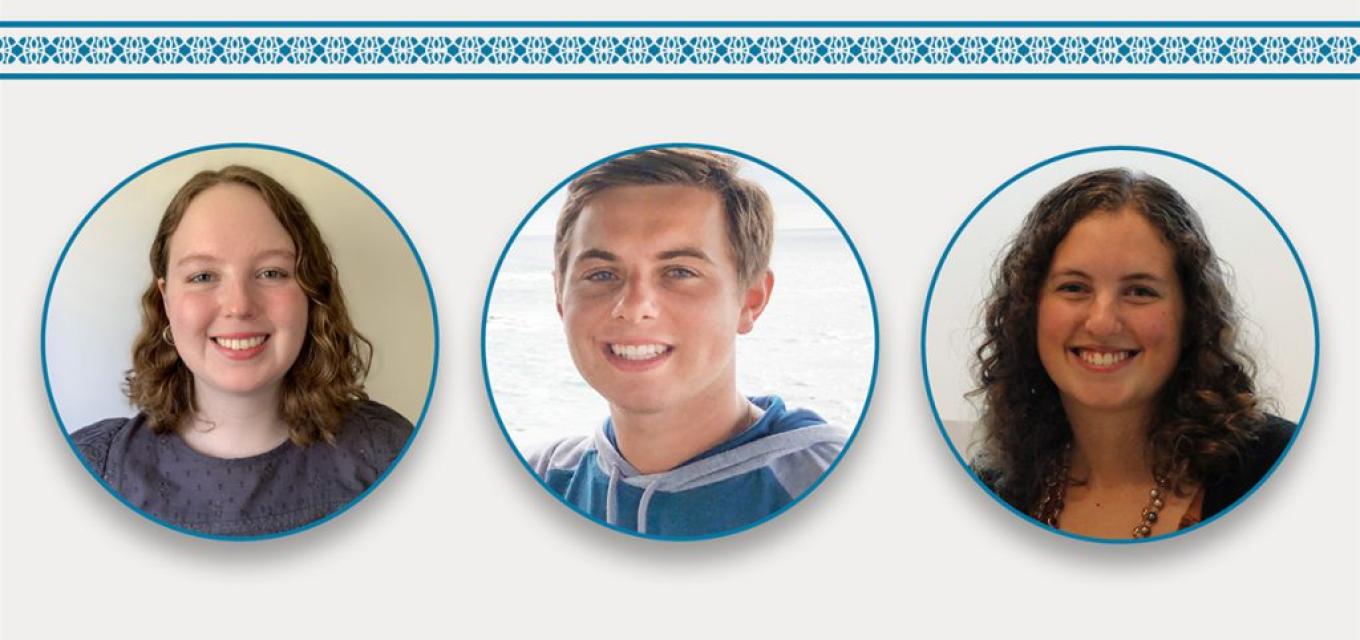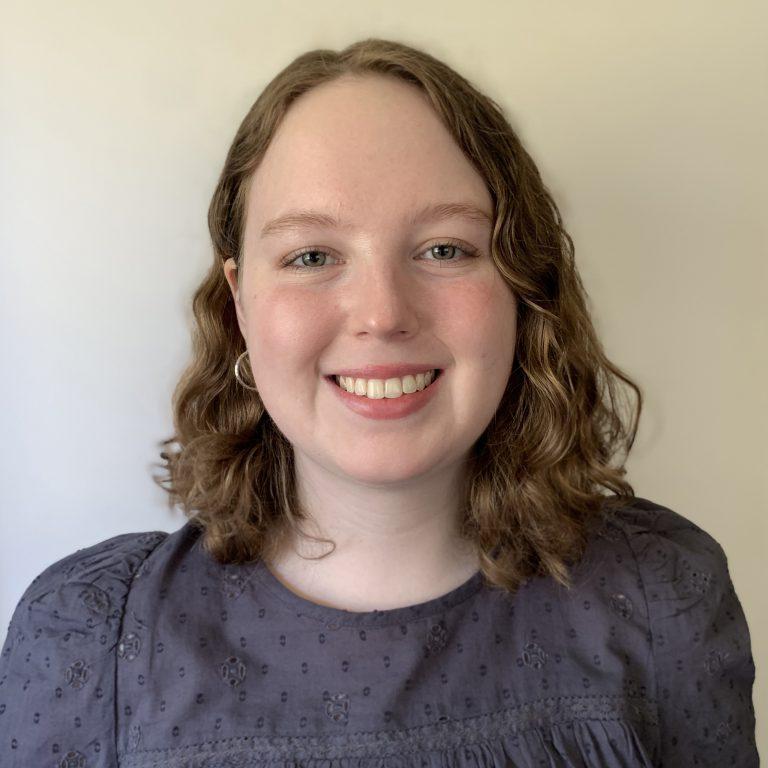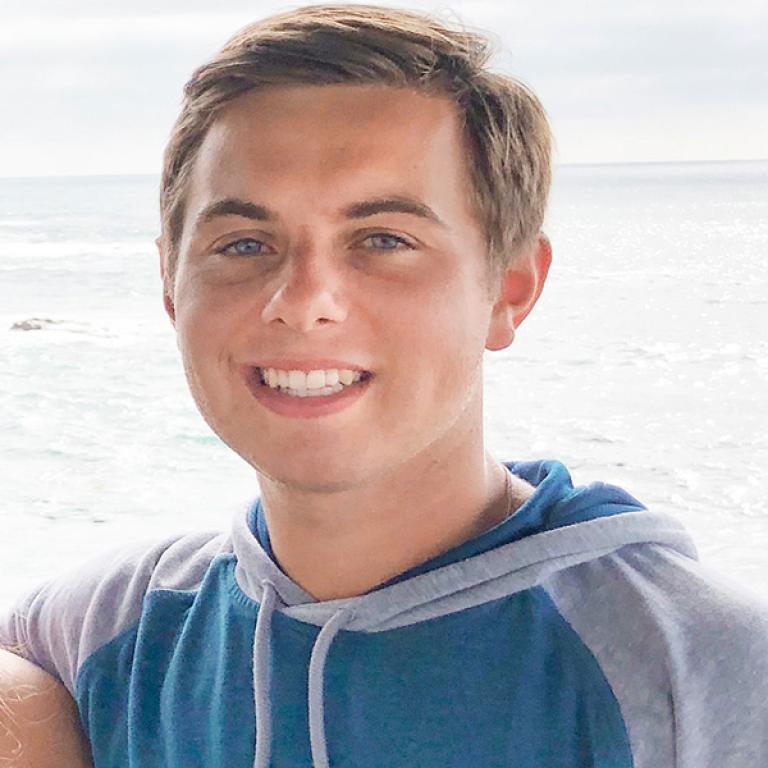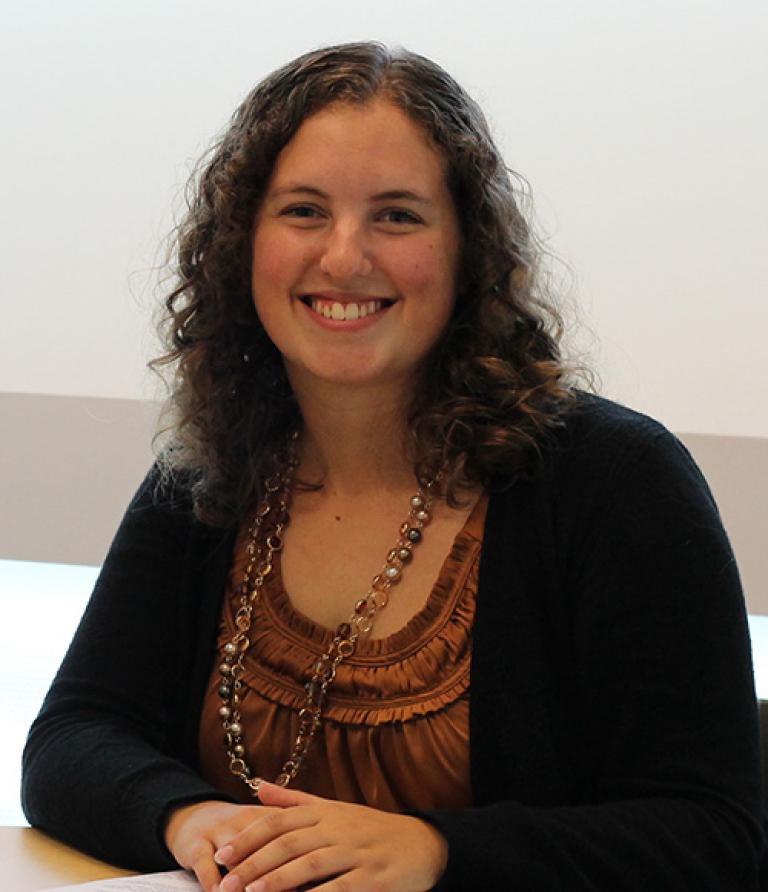News

Keeping on the cutting edge
CEHD announces a swath of new programs and degrees to meet today’s challenges.
To meet the needs of today’s students in an ever-changing world means always keeping a vigilant eye on the latest developments across all academic disciplines. CEHD is proud to announce several new programs and degrees designed to keep our students on the cutting edge of their fields.
Educational Psychology Research Minor
Launched in spring of 2022, the Educational Psychology Research Minor was born from a specific need. “We have a number of instructors in Ed Psych who teach undergraduate courses in research-based methods,” says Director of Undergraduate Studies Kathy Seifert. “One of those instructors, Martin VanBoeckel, began fielding questions about research opportunities for our Ed Psych undergraduate students.”
From this interest, Seifert and Van-Boeckel looked into not only creating research opportunities, but also making those opportunities meaningful.
“We found that Ed Psych offered a number of courses that, if we bundled them, could provide those meaningful research experiences,” Seifert says. “And so, our Educational Psychology Research Minor was born.”
The program is designed for any student at the University, but Seifert anticipates students who are in honors programs that require research, those who are interested in graduate school, and TRIO students would be the greatest draw.
“However, the minor is not only for those populations of students,” Seifert says. “We have honors and non-honors sections of all the courses in the minor. Although the minor is housed in Ed Psych, we are open to collaborating across disciplines to provide students with research experiences that relate to their future interests.”
What makes this minor unique is the prescribed courses and course sequence in the minor. In the first semester in spring, students take a course in the basics of research methods, which lays the foundation for what research is. At the end of the course, students work with the instructor and the director of undergraduate students on identifying faculty-directed
research opportunities.

“Being involved in research has been one of the most beneficial and influential experiences during undergrad. I have not only had the opportunity to explore my interests in a capacity that helps to develop my knowledge and skills, but I have also had the chance to meet and connect with many amazing professionals in the field.”
- Emily Bellinger, BS, Psychology
In the fall semester, students register for three credits of faculty-directed research and begin their work with research faculty right away. In addition, they take one additional course in statistical methods. In the third semester, students register for their second semester of faculty-directed research and a second research course where they expand their knowledge of research methods as they apply their experiences to practices. The course culminates in students presenting their research at an Undergraduate Research Symposium. It also serves as a thesis writing course for honors students.
“This minor is unique from any other minor at the U in that it systematically, over the course of three semesters, teaches research methods from theory to practice to presentation, and hopefully, publication,” Seifert says, adding that she believes having this minor on a transcript will have a significant impact on students being accepted into graduate school.
Special Education Minor for master's students
Another new Educational Psychology minor is ideal for those enrolled in teaching programs. The Special Education Minor for Master’s Students began taking applicants this past summer.
“Although the special ed minor is open to any student across the University, it’s really geared toward pre-service general education teachers,” Seifert says. “The minor doesn’t provide the requirements to be a licensed special education teacher, but it does provide general education teacher candidates a better understanding of how to recognize student issues, gather data to help students get the supports they need, and work collaboratively with special education teachers and related service providers.”
The program came about because general education teacher candidates are required to take a few credits from educational psychology to fulfill their licensure requirements. “We’ve heard
from a number of teacher candidates over the years asking for additional course-work in working with students with special needs,” Seifert says. “Because the academic and social/emotional needs of K-12 students are so critical, the special education program felt it was important to offer additional coursework to teacher candidates beyond the minimum requirements.”
Because the general education teacher candidates are taking courses with special education teacher candidates, a benefit for both is the collaboration between the two teaching disciplines while taking courses together. “We, as a department, are very excited to work with general education teacher candidates in our courses to foster this type of working relationship,” Seifert says.
For general education teacher candidates, the added knowledge regarding teaching students with special needs will benefit them significantly as students with special needs are included in general education settings with greater frequency in public schools. “The special ed minor will provide teachers with a better understanding of how to recognize risk
factors and differentiate instruction for all students,” Seifert says. “School districts are desperate for this type of knowledge in their future hires.”
Autism Certificate Program
Educational Psychology has offered an Autism Certificate Program for some time now, but it has recently been revised as an online program to better meet the needs of today’s busy individual.
“We had the expertise and experience to provide students with essential knowledge and evidence-based practices to serve autistic individuals through our past in-person autism certificate program,” says Special Education Assistant Professor M. Y. Savana Bak. “However, we continuously received feedback from students and potential students to move it to an online program for easier access.”
An online certificate is ideal for in-service teachers and student-teachers who could fit the courses into their already packed schedule of teaching full or part-time.

” This program has been a great opportunity for me to continue my knowledge and passion for ASD. Working through these classes virtually has allowed me to collaborate with so many people and get a wide range of opinions that has helped me get different perspectives. Finding unique ways for all of us students to work together online is what has made this program exciting and productive for me and my learning.”
– Kyle Abatto, Developmental psychology major
This program is not a degree. “It is an ‘add-on’ option for individuals seeking to increase their expertise in learning about supporting autistic learners,” Bak says. Typical students include pre-service teachers and in-service teachers who are already teaching but are seeking to learn more specific and effective ways to serve their autistic learners. The program is also for pre-service and in-service clinicians in speech-language therapy, music therapy, health, medicine, behavioral therapy, psychology, and even caregivers and others stakeholders like siblings who
are seeking to increase their knowledge to better support autistic individuals.
“The flow and sequence of the program is very specific,” Bak says. “Oftentimes, ASD [autism spectrum disorder] can be introduced as part of a special education introduction course, or if taught separately, in one or two courses. However, this course has 12 credits dedicated just for autistic populations.”
In addition, the faculty and instructors provide the most up-to-date research and evidence-based practices, not just as a linear supply of information, but tied to current pressing issues. “Recently, we are increasing discussions about autism as an identity, intersectional considerations for accommodations, culturally responsive intervention planning, and life after school for autistic adults, such as employment opportunities and higher education,” Bak says.
Graduate Certificates in Learning Sciences and Learning Analytics
The Department of Educational Psychology’s Learning Sciences Graduate Certificate and the Department of Curriculum and Instruction’s Graduate Certificate in Learning Analytics both emerged out of the interdisciplinary Learning Informatics Lab.
Professor Panayiota (Pani) Kendeou, Associate Professors Bodong Chen and Keisha Varma, and Assistant Professor David DeLiema developed and proposed the two certificates to bring a focus on learning analytics and the learning sciences to CEHD students and the broader Minnesota community of educators.
“They are both excellent ways for graduate students and education professionals to extend their coursework and develop expertise in these highly relevant skill sets,” DeLiema says.
The learning sciences certificate focuses on learning theories, methodologies, and designs. “The certificate provides a way to deepen students’ exploration of the learning sciences,” DeLiema says. “We have a strong and growing learning science community at UMN, and through this certificate, brought together coursework that gives students both the foundations
of the field and the cutting-edge, emerging areas of scholarship.”
Students in the 12-credit program take courses in educational psychology, curriculum and instruction, computer science, and broader areas of education and human development. The focus is on participatory design-based research with teachers, software developers, students, families, and community members.
The program is ideal for current or future teachers, students pursuing research in education or psychology, policymakers, educational technology developers, public health professionals, and anyone interested in rethinking their teaching approach in service of helping those they work with learn and grow.
The Graduate Certificate in Learning Analytics is about using educational data ethically and effectively. With the rise of big data, having these skills is paramount. Students in this 12-credit program will learn how to incorporate analytics into educational practice and research while gaining an understanding of the fundamentals of learning analytics. The certificate is ideal for students working with data in a range of contexts, including educational technologies/games that provide detailed logs of students’ learning behaviors, large data sets that can provide a window into student learning over time, and collaborations with teachers who are studying their own classroom data to improve their pedagogy.
DeLiema says these new programs represent important areas of educational research that have been under heavy faculty focus for some time. “We’ve had this expertise in CEHD for a long while,” he says, “And our new faculty are even further extending our range of skill sets.”
The interdisciplinary aspect of the programs, bringing together educational psychology, curriculum and instruction, and computer science is also key to their strength. “It’s just really exciting we are able to pull these threads together,” De-Liema says. “The courses students take around the certificates are really deep introductions to these interdisciplinary
communities.”
Kendeou says that both certificates will enable the college to build capacity in cutting-edge areas and position interested applicants for a competitive workplace.
Human Movement Pipeline Program
Increasing student diversity is always a top concern in higher education. The School of Kinesiology’s new Human Movement Pipeline Program (HMPP) was designed with that concern specifically in mind. Created in partnership with the Division of Physical Therapy in the Department of Rehabilitation Medicine at the Medical School, HMPP seeks to identify, recruit,
and support motivated undergraduate learners of diverse backgrounds who are interested in developing expertise in physical activity and human movement with an eye on a physical therapy career.
“Ultimately, it is intended to be a pipeline to the UMN’s Doctor of Physical Therapy [DPT] program by providing intentional support and mentorship for students to address barriers to success and identify growth opportunities,” says School of Kinesiology Director of Undergraduate Studies Brandi Hoffman. “This is really an opportunity to learn more from our students about the very real barriers they encounter while pursuing the DPT and developing the infrastructure, resources, and opportunities that will support their success.”

“I revel in the complexity of learning as it unfolds, and when I first heard of the learning sciences, I found a field of other researchers and designers who were just as passionate about understanding how learning happens as I am. The learning sciences takes learning in authentic environments as its starting point, embracing complexity as ubiquitous and potentially an important element in education. The learning sciences certificate allows me to explore new epistemological and methodological horizons, expanding my toolbox for future educational research and design work!”
–Megan Goeke, third-year PhD student in educational psychology
The pipeline program emerged from a meeting Hoffman had with Sara North, an assistant professor and director of educational innovation and evaluation in the Division of Physical Therapy and the co-director of the Center for Interprofessional Health. “We began meeting to explore ways we might be able to support students pursuing a doctorate of physical therapy and whose identities are underrepresented in the health professions,” Hoffman says.
Hoffman and North’s brainstorming led them on a consultation tour with Anthony Albecker, McNair Scholars Program director; Kayla Cory, McNair Scholars Program advisor and Health Professions Pathways Program assistant manager; and Tricia Todd, Pre-Health Student Resource Center director.
Assistant Professor and DEI Coordinator and Strategist for the Division of Physical Therapy Briana Partee has since joined the leadership team for this initiative and will oversee the pipeline program in the future.
Eligible applicants for the program include high-achieving, historically underserved U students who were identified as President’s Emerging Scholars (PES) and accepted to the Pre-Health Student Resource Center’s Pathways Program. These students have completed their first year; have demonstrated evidence of overcoming social, economic, or physical barriers to educational achievement; and identify as underrepresented (someone from a rural community, who is economically disadvantaged, a first-generation college student, and/or from a racial or ethnic population that is underrepresented in the health professions).
“The program incorporates many of the professional health program’s pre-admission requirements, is grounded in the study of human movement and physical activity, engages students with renowned faculty and their industry-relevant research, and offers advanced study in relevant areas,” Hoffman says.
HMPP students will have unique network opportunities, access to professional development, individualized mentorship, and early access to advising teams and coursework.
“The goal is to build a program that creates opportunities for these students to be well prepared and qualified for the DPT application process,” Hoffman says. “I am hopeful that the HMPP will attract more PES students to the kinesiology program.”
Physical Activity and Health Promotion
Brand new this fall is a Physical Activity and Health Promotion BS program in the School of Kinesiology. The program, open to students after completing 30 credits and some prerequisites, explores how individuals and families can increase physical activity and improve healthy lifestyles to prevent disease.
“Students who have an interest in working in an allied health field will find this interesting,” says Undergraduate Academic Adviser Tracey Hammell.
Program coursework is focused on how to collect and analyze data to plan, implement, monitor, and evaluate programs designed to encourage healthy lifestyles. “People coming out of this major would have applicable skills. It’s great for people working in non-profits and doing a lot of grant work. You could be a health advocate working within a community setting,” Hammell says.
An array of core and elective courses in this four-year program prepares students for careers in health coaching, worksite wellness, corporate fitness, and other health promotion-related fields.
“There’s a health promotions class, there’s an exercise physiology class; students will also take anatomy,” Hammell says. “They will also take PE classes so that they can learn about different ways to be active and engaged outside of what they’re used to doing just in their own physical wellness and wellbeing.”
Besides the hardcore science courses in the program, there is also a healthy dose of social science with courses on community engagement and communication. “It’s really a nice merging of the two,” Hammell says. “So if you have an interest in science, but you are also interested in helping folks in a non-clinical setting figure out how to be active and engaged, this is really a great program to do that.”
What makes the program unique? “We have fantastic faculty who are working with this program. Just bar none,” Hammell says. From Daheia Barr-Anderson’s work on obesity across the lifespan to Don Dengel’s research on exercise physiology, Zan Gao’s focus on physical activity epidemiology to Beth Lewis’ work on promoting physical activity and behavioral interventions, every facet of the program gets explored in depth. “The faculty really bring in this rich variety of different aspects,” Hammell says. “It’s really fantastic and engaging work that adds a lot to this program.”
-KEVIN MOE